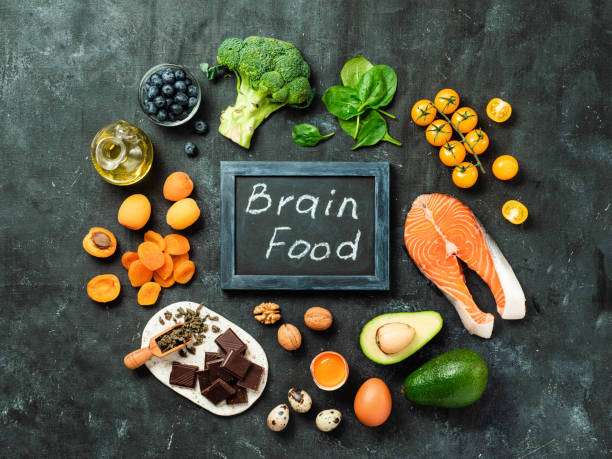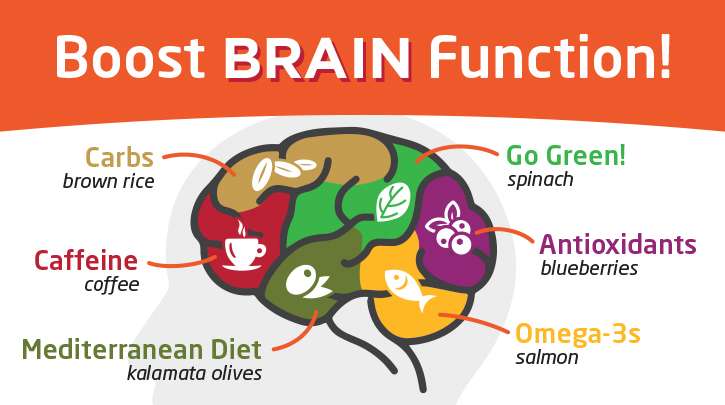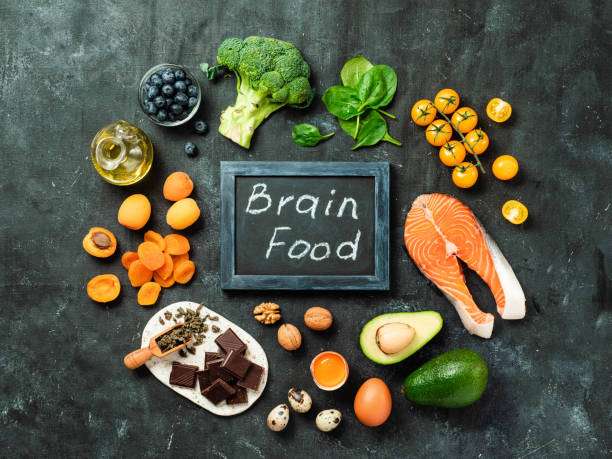Best Diet for Optimal Brain Health https://georgetownsuncryo.com/
[current_date]

Perhaps you’re familiar with the saying “You are what you eat,” and believe it or not, there’s truth to it. Every day, around 300 billion cells are shed by the average adult. Your body engages in a continuous process of self-renewal, powered by the nutrients from your diet. This even applies to your brain. A diet that is rich in inflammation-triggering, heavily processed, and lacking in nutrients doesn’t support optimal cognitive function. Instead, it hinders your capacity to think, rationalize, innovate, and perform. So, what dietary approach holds the key to promoting brain health and a long, vibrant life?
How does your diet affect you?
Many people forget the importance of a healthy diet. It’s why nearly half of the US population is obese and an additional 32 percent are overweight. Being a healthy weight in the US is a minority. Let that sink in. We’re eating a diet rich in high fructose corn syrup, refined grains, and factory-farmed meats and we’re spending nearly two hours a day doing nothing other than eating. Plus, according to a 2016 survey, nearly 40 percent of all US adults had eaten fast food that day. Our bodies are adapted to store excess energy as fat, which was once evolutionarily advantageous but is now causing obesity, type 2 diabetes, heart attack, stroke, and death.
Before we get into what you should be eating, here’s what you shouldn’t be eating and how it affects your brain.
Steer Clear of These Foods to Promote Optimal Brain Health

1. Refined carbohydrates
Highly processed carbohydrates that have had the germ and nutrients removed are known as refined carbohydrates. Rather than the carbohydrate being encased in a fibrous shell — the germ — the grain is refined into a simple sugar, meaning it spikes your blood sugar rapidly, known as having a high glycemic load. High glycemic (GI) foods have been linked in research to poor brain health and accelerated aging. A study published in the journal Nutrients in 2015 found that after a single high GI meal, researchers saw a decline in memory recall in a group of participants.
2. Refined sugar
Similarly, refined sugar is a high-GI food. A study found an association between sugar intake and Alzheimer’s disease risk, and another study found a link between sugar intake and dementia — two conditions relating to brain health. This is likely due to the inflammation caused by a diet high in refined sugar.
3. Processed foods
It’s easy to eat processed foods, but they’re killing your brain. A study found that a diet high in processed foods resulted in lower levels of sugar metabolism in the brain and a decrease in brain tissue. Another large-scale study found a strong association between highly processed diets and lower scores in learning and memory tests.
So now you know what not to eat. What should you eat for optimal brain health?
Optimal Brain Health: Choosing the Right Foods to Nourish Your Mind

1. Omega fatty acids
Omega-3 fatty acids play a vital role as essential nutrients that provide support for both brain and cardiac health. The three primary types, namely ALA (alpha-linolenic acid), DHA (docosahexaenoic acid), and EPA (eicosapentaenoic acid), are of utmost importance. Since your body is incapable of producing omega-3 fatty acids on its own, it becomes imperative to obtain them through dietary sources. An intriguing fact is that 60 percent of your brain comprises fats, with half of that fat being constituted by omega-3. Hence, ensuring an adequate intake of these fatty acids stands as a reliable method to enhance cognitive function.
Research has demonstrated a profound link between a deficiency in omega-3 within one’s diet and the occurrence of learning difficulties as well as depressive states. An illuminating investigation conducted by the American Journal of Preventive Medicine revealed that individuals who incorporate fatty fish into their regular diet possess a greater amount of gray matter in their brains. Gray matter, recognized for its involvement in decision-making, memory retention, and emotional control, stands as a crucial component. Furthermore, scientific inquiry has disclosed that the consumption of fatty acids contributes to the elevation of brain-derived neurotrophic factor (BDNF), a protein inherent in the brain responsible for bolstering cognitive capabilities.
Examples: Salmon, mackerel, tuna, herring, sardines, flaxseed, chia seeds, and walnuts.
2. Antioxidants
Antioxidants are compounds that combat the harm caused by free radicals, oxidative stress, and inflammation. These factors contribute to issues related to the brain and expedited aging. Free radicals emerge due to external stressors such as pollution, sun exposure, smoking, or an unhealthy diet. They pose a significant threat as they harm our DNA. The consequence of cellular damage by free radicals is twofold: visible signs of accelerated aging, such as sagging skin and increased wrinkles, and less apparent effects, including the deterioration of our brain health, as indicated by a study conducted in 2004.
By consuming foods rich in antioxidants, you equip your body with the means to counteract free radicals and the ensuing damage they inflict.
Examples of such antioxidant-rich foods include blueberries, goji berries, raspberries, kale, artichokes, dark chocolate, grapes, broccoli, and strawberries.
3. A variety of color
You might be familiar with the concept of “eating the rainbow,” which holds true when consuming whole, unaltered foods, as each color corresponds to specific nutrients they offer. For instance, foods with an orange hue like oranges, pumpkins, and carrots are packed with carotenoids, such as beta-carotene, an antioxidant that fosters healthy cell growth and blood circulation. Red-hued foods like tomatoes, red peppers, and strawberries contain phytochemicals like lycopene and ellagic acid, which combat free radicals, diminish inflammation, and bolster immune function. Meanwhile, yellow foods encompass flavonoids and antioxidants that contribute to brain well-being.
According to a study, a diet abundant in flavonoids, a prevalent compound found in plant-based foods, especially those with yellow hues, correlates with enhanced learning aptitude and memory recollection. This stems from the fact that flavonoids amass within the brain. Notably, flavonoids, carotenoids, and phytochemicals all possess neuroprotective properties, guarding neurons against toxins and inflammation—two pivotal factors for maintaining brain health.
Embracing a diverse range of colorful foods also influences your hormones. Research indicates that plant-based foods trigger an upsurge of dopamine, colloquially known as the “happy hormone,” thereby enhancing mental well-being and perspective. This might explain the linkage between a nourishing diet and reduced instances of depression.
4. Anti-inflammatory foods
Inflammation is at the root of all illnesses and diseases. Studies show that consuming highly inflammatory foods like refined grains and sugar actually slows down communication between neurons, causing brain fog, poor memory, and a decline in cognitive performance. But it’s not just a case of being forgetful, inflammation in the brain means nerve cells are dying and your brain is aging rapidly and increasing your risk for neurological diseases. Anti-inflammatory foods fight inflammation, helping you to stay healthy from the inside out.
Examples: Avocados, nuts, broccoli, organic red meat, salmon, blueberries, strawberries, and extra virgin olive oil.
So all things considered, which type of diet is best for brain health?
The Advantages of a Diet Low in Carbs and High in Healthy Fats for Brain Health

Based on extensive research, it is evident that an ideal approach to promote brain health and longevity involves adopting a diet rich in healthy fats while minimizing the intake of refined carbohydrates.
This entails consuming abundant plant-based foods such as fruits, vegetables, fatty fish, and lean meats while eliminating refined and processed foods altogether. A study from 2017, commonly referred to as the Mediterranean diet, showcased a connection between this dietary pattern and reduced risk of memory issues among older individuals, along with enhanced cognitive abilities, particularly in terms of memory and attention. Furthermore, a preliminary study demonstrated the potential of a high-fat, low-carb diet to reverse indicators of brain aging in older adults.
A recent investigation led by the University of Illinois delved deeper into this subject, employing rigorous assessments including MRI scans, dietary surveys, and blood nutrient evaluations. This study aimed to uncover more about the correlation between a Mediterranean diet, which is higher in healthy fats and lower in carbs, and its impact on brain health.
The researchers evaluated the efficiency of brain connectivity networks and discovered that those adhering to a Mediterranean diet displayed “augmented functional brain network efficiency.” This heightened efficiency reflects cognitive functionality, specifically the processing and communication of information within the brain to accomplish tasks. Moreover, improvements were observed in nutrient levels, particularly omega-3 fatty acids, vitamin B12, and vitamin D—nutrients that commonly experience deficiencies in the US population.
Lastly, a meta-analysis examining numerous randomized controlled trials involving 7,758 participants, considered the gold standard in research, indicated a strong connection between the Mediterranean diet and elevated cognitive function, coupled with a reduced risk of age-related cognitive decline.
For an aging population, adopting a Mediterranean diet has clear benefits.
In fact, the analysis found that eating fish more than two times per week was able to slow cognitive decline. The rates of dementia and other neurological conditions are rapidly increasing in the US and so finding a preventative treatment is integral for the health of our country — it appears the Mediterranean diet may be part of the solution.
Final Thoughts
Modifying your eating habits leads to a transformation in your brain. Your cognitive functions, including thinking, reasoning, self-control, and memory retrieval, become more effortless. Mood improvements are evident as well, with reduced feelings of depression. The aging process of your skin decelerates, and your ability to swiftly recall memories heightens. Furthermore, your professional performance sees enhancement.
These principles are grounded in science, not passing trends. If your aim is to experience vitality, radiance, and an extended quality of life, adjusting your dietary choices is pivotal. The path to optimal functioning commences with mindful selections from fork to mouth. Thus, choose wisely to embark on this journey.
